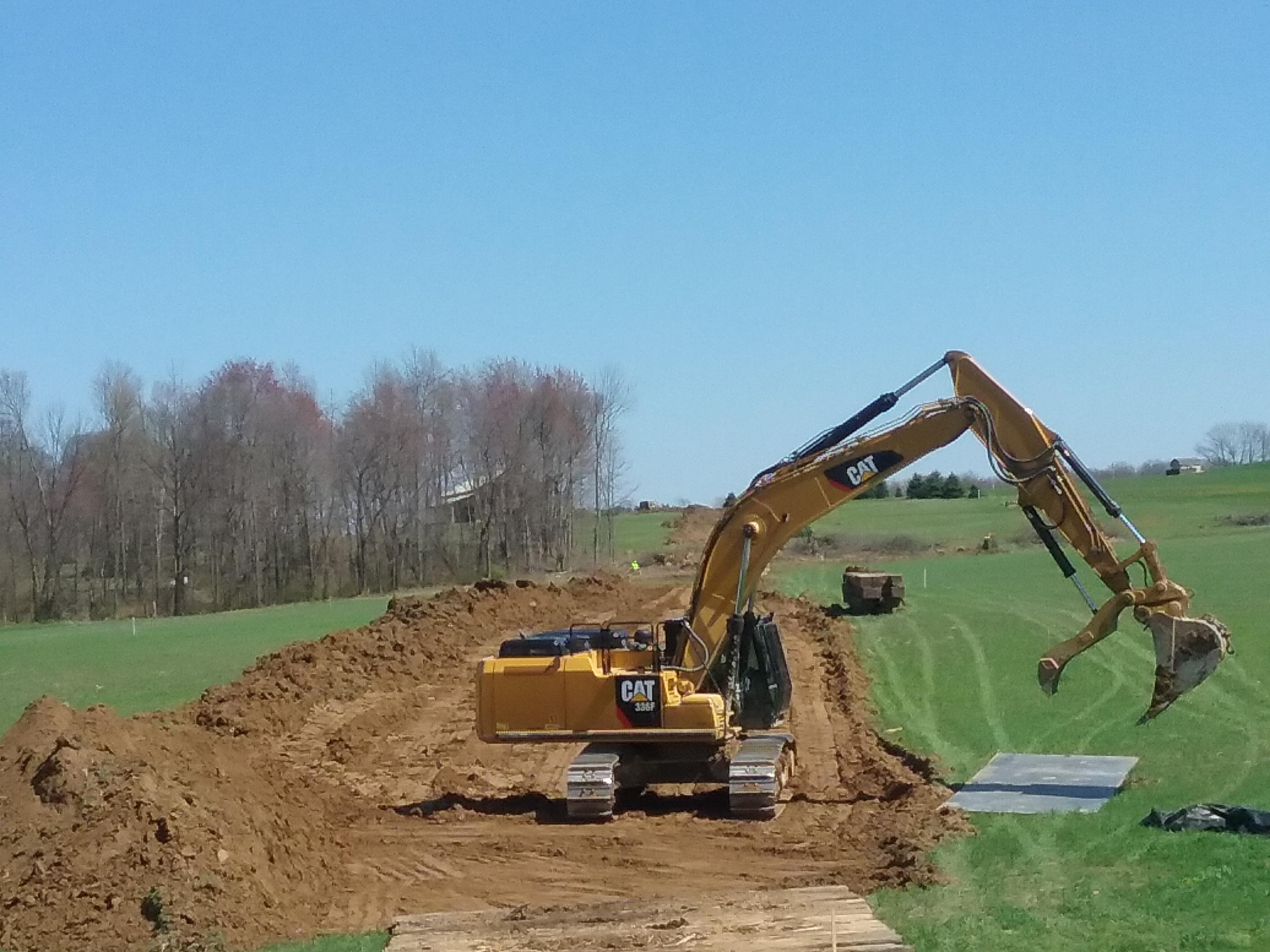Before it began digging into the earth to bury its two-and-half-foot-wide, 1,172-mile-long pipeline in the ground, Dakota Access, LLC promised to restore the land to its previous condition when construction was finished. The pipeline company signed that pledge in its contracts with landowners stretching from North Dakota to Illinois, and the project was approved by the South Dakota Public Utilities Commission under that condition. But farmers in the path of the pipeline have a different story to tell – one of broken promises and sustained damage to their land.
Now, there’s data to back them up.
Researchers at Iowa State University found that in the two years following construction of the Dakota Access Pipeline corn yields in the 150-foot right-of-way declined by 15 percent. Soybean yields dropped by 25 percent.
One of the selling points that energy companies often tout is that pipeline infrastructure is seemingly invisible, buried and forgotten over the long run. The new study, published in the journal Soil Use and Management, seems to contradict that claim.
The scientists said the major issue is that soil is compacted by heavy machinery during pipeline construction, and that topsoil and subsoil are mixed together. Taken together, the damage “can discourage root growth and reduce water infiltration in the right-of-way,” Robert Horton, an agronomist at Iowa State and the lead soil physicist on the project, said in a statement. He and his colleagues also found changes in available water and nutrients within the soil.
The findings are important for a number of planned pipelines across the Midwest. In one instance, the planned Midwest Carbon Express would be built on land already used for the Dakota Access pipeline, leaving farmers reeling from double impact on their crops.
It also adds to other new research on the long-term effects of pipelines on agriculture. In Ohio, using data collected from 24 different farms, researchers recently announced that corn and soybean yields were still being negatively affected three years after the construction of a series of smaller pipelines.
“Every pipeline site is going to be slightly different, but there is a general trend of degradation overall,” Theresa Brehm, one of the researchers and a graduate student at Ohio State University, told Grist.
For corn, yields were down an average 23.8 percent.
“That means [farmers are] losing almost a quarter of the productivity of that land,” Brehem said, adding “it’s not just a 23 percent decrease from one year. There’s actually a longevity impact of that.”
Pipeline companies will often agree to reimburse farmers for 100 percent of crop damage in the first year after construction is complete, 75 percent for the second year, 50 percent for the third year, 25 percent for the fourth year, and 0 percent for the fifth year.
But, “by year five most people aren’t getting any compensation at all,” Brehm said.
Brehm told Grist that’s why they looked at farms where more than three years had passed since a pipeline’s construction, to see the long-term impact on farmers.
Greg Sautter owns a 100-acre farm in Wayne County, Ohio and contributed data for Brehm’s research. A natural gas pipeline called the Rover Pipeline intersects his land. Construction started in 2014 and took two years. Sautter told Grist the company’s promise before the pipeline went in was that “there would be no yield loss, and the land would be put back just the way it was before.”
But that’s not what happened.
In the first year after the pipeline was complete Sautter planted cover crops to try and restore organic matter to the land. In the fourth year, after consulting with a soil scientist, the pipeline company paid for more than 100 loads of topsoil. The next year they were finally able to plant their usual crops. But they noticed a decline in yield.
The corn, Sautter said, “was 2 to 3 feet shorter and had very small ears.”

Sautter told Grist the impact of the pipeline’s destruction on his land has been emotional. “Here’s something that happened to your land that you would never think about doing yourself – taking a 150-foot swath, turning the soil upside down, mixing it together with rocks and subsoil, and laying it back down to try to grow something,” he said.
Sautter’s story is not unique. In 2017, a family sued DAPL for failing to restore the land how it was before construction and failure to compensate them for damages to their 800-acre farm. In 2021, in Oklahoma, Cheniere Energy missed multiple deadlines to restore private land that was affected when they built a 200-mile natural gas pipeline. Farmers across the country have similar experiences, but often feel they don’t have the money to take pipeline companies to court, leaving them suffering with the economic and emotional consequences of once-abundant farmland now scarred by a pipeline.
“They’ll probably win anyway and it’ll just cost you a bunch of money to try to fight it,” Sautter said.
This story was originally published by Grist with the headline New research shows sustained damage to agricultural land near pipelines on Jan 7, 2022.
This content originally appeared on Grist and was authored by Jena Brooker.
Jena Brooker | Radio Free (2022-01-07T11:15:00+00:00) New research shows sustained damage to agricultural land near pipelines. Retrieved from https://www.radiofree.org/2022/01/07/new-research-shows-sustained-damage-to-agricultural-land-near-pipelines/
Please log in to upload a file.
There are no updates yet.
Click the Upload button above to add an update.